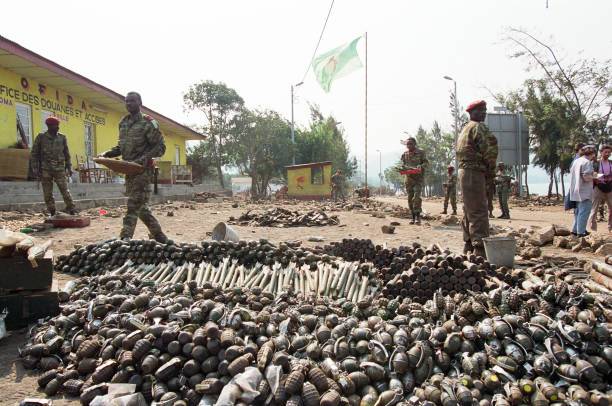Rwanda genocide: Lesson to prevent yet another one in Kashmir

Stay tuned with 24 News HD Android App

On 7 April, the world community commemorates the International Day of Reflection on the 1994 Genocide against the Tutsi in Rwanda.
If we consider the fact that the fundamental mission of the United Nations in being created was to be a means of preventing global catastrophes like the Rwanda Genocide, then the simplest answer is that it has been an enormous failure.
Counted among the greatest failures of the UN is Srebrenica, a town in eastern Bosnia only ten miles from the border of Serbia, which came under attack by the Serbs in July 1995 during the Bosnian war. Although U.S. and British officials knew several weeks in advance that the Serbs intended not only to attack the village but also intended to separate all the men and boys from women and children and kill them, they did nothing to protect them. UN forces were not reinforced. No plan to evacuate them was made. More than 8,000 men and boys were slaughtered in a matter of days.
In 1994, a far worse genocide occurred in Rwanda when close to a million Tutsis were slaughtered by Hutus. The UN knew that this was going to occur in advance and yet and allowed massive genocide to occur and did not block it. As an article in the Telegraph points out, 'A 1999 inquiry found that the UN ignored evidence that the genocide was planned and refused to act once it had started. More than 2,500 UN peacekeepers were withdrawn after the murder of ten Belgian soldiers. In one case, the peacekeeping forces deserted a school where Tutsis were taking shelter – hundreds of people inside were immediately massacred."
Mr. Antonio Guterres, Secretary-General of the United Nations stressed in his message for International Day of Reflection on 1994. “The genocide was neither an accident nor unavoidable. It was deliberate, systematic — and carried out in broad daylight. No one who followed world affairs or watched the news could deny the sickening violence taking place. Yet too few spoke out — and fewer still tried to intervene.”
Mr. Guterres added that the genocide against the Tutsi raised questions that affect all humankind — fundamental questions about the role of the Security Council, the effectiveness of peacekeeping, the need to end impunity for international crimes, the need to address the roots of violence, and the fragility of civility.”
Dr. Gregory Stanton, Chairman, Genocide Watch spoke to ‘The WIRE’, “We’ve learned over the years that we should not ignore these early warning signs. We knew that there were very early warning signs, for instance, in Rwanda five years ahead of the time when the genocide there happened. We warned, no one did anything about it. We tried to even warn the President of the country.” He added “The reason we try to warn is (that) our objective is prevention. If you warn after the genocide is over, it’s too late. Unfortunately, that’s usually been the response of most of the international community.”
Dr. Gregory Stanton has also warned the world community that Kashmir was at the brink of genocide. “So many of the early stages of genocide are already present. We don’t wait until it is a full out mass killing campaign to declare genocide. There are early warning signs of genocide now and that’s what we believe is the situation in Kashmir,”
Dr. Stanton eloquently stressed “I don’t see a strong foreign policy yet coming out of the Biden administration. I would make it part of our policy that we need to communicate to Mr. Modi that the US will not tolerate the kind of intolerance that he is preaching if we are going to have a good economic relationship with India.”
Any effort to stop genocide and resolve the Kashmir conflict requires confronting the issue directly and honestly, and that is something that seems difficult for the Government of India to do. India does not want to resolve the Kashmir conflict but to dissolve it. India wants Kashmir issue to be buried under the rug when the issue is raised in the international community by alleging that it is a bilateral issue between India and Pakistan and no one else’s business. It could be strictly a bilateral issue if forthrightness was involved.
The people of Kashmir do not wish anybody to take a partisan side. Kashmiris are convinced, nevertheless, that impartial observers would support the Kashmir cause based on universal principles, democratic values, rule of law and international justice.
Therefore, we believe that the American response to the Kashmiri situation must be based on the principles of the right of a people with a distinct historical and cultural identity to decide their own future; the sanctity of international agreements worked out by the United Nations; a peaceful and stable subcontinent free from the possibility of a regional nuclear exchange; and the consistent application of human rights standards. Such an approach could lead to a just and peaceful resolution of the 76-year-old dispute that would be a lasting credit to U.S. foreign policy under the Biden administration. On the other hand, reluctance to undertake such an initiative neither contributes to a long-term strategy of global peace and security nor answers the demands of human conscience and the principles of justice.
We firmly believe that peace in the region would benefit not only those who are directly impacted by this conflict – Kashmiris - but India as well. Sounder minds must prevail. More rational methods of dealing with differences must be sought. Repeating the same mistakes while expecting different results has long ago been found to be the path of failure. Seventy-six-years should demonstrate a need for a change in policy, a policy that acknowledges the need for coming together in a process that accepts the right of all people to determine their own destiny.
